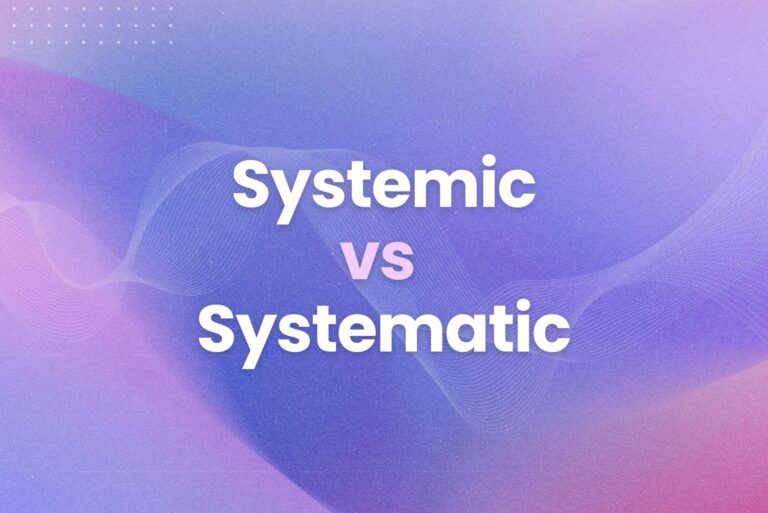Advice vs Advise: Common Mistakes and How to Avoid Them
Words have power. But confusing similar words can weaken your message. For instance, mixing up advice and advise is a common pitfall. Consequently, your writing might not hit the mark. This article clears up the confusion between advice vs advise. In short, we’ll help you use them correctly every time.
- Understand the difference between advice vs advise.
- Learn simple tricks to remember which word to use.
- See examples of correct usage in sentences.
Let’s find out.
Definitions of Both
Let’s get straight to the point. Advice and advise sound almost identical. However, they have distinct meanings. Therefore, knowing the difference is crucial for clear writing.
- Advice (pronounced with a soft “s”) is a noun. That is to say, it’s a thing. For example, it refers to guidance or recommendations offered about future action. In other words, it’s the information you give someone.
- Advise (pronounced with a “z”) is a verb. Similarly, verbs express actions. For instance, advise means to offer suggestions or recommendations. In short, it’s the act of giving advice.
Here’s a quick way to remember: Advice is like a device – a thing. On the other hand, advise is something you do. This simple trick can help you avoid confusion. Moreover, it makes remembering the difference much easier.
Understand the Main Difference Between Advice vs Advise
Now, let’s break down the difference between advice and advise further. Firstly, remember their parts of speech. Advice is a noun. Secondly, advise is a verb. This is the core distinction.
- Advice (noun): This refers to a recommendation or guidance. For example, “I took her advice and invested in the stock market.” In this case, advice is the thing she gave.
- Advise (verb): This means to offer a suggestion or recommendation. For instance, “She advised me to invest in the stock market.” Here, advised is the action she performed.
To clarify, think of it like this: You give advice (noun). And you advise (verb) someone. It’s a simple but effective way to keep them separate. Moreover, using this trick will improve your writing.
Furthermore, consider the context of the sentence. Does the sentence describe an action? If so, you likely need verb advice. On the other hand, if the sentence refers to a piece of information, you need the noun advice.
Examples of Correct Usage
Seeing advice and advise in action makes the difference clearer. Therefore, let’s look at some examples. These examples will solidify your understanding. Moreover, they’ll show you how to use each word correctly.
Advice (noun)
- “She gave me some excellent advice about investing.” Here, advice is the thing she gave.
- “I followed his advice, and it paid off.” In this case, advice refers to the guidance he provided.
- “Good advice is hard to find.” Similarly, this sentence treats advice as a valuable commodity.
Advise (verb)
- “The doctor advised me to rest.” Here, advised is the action the doctor performed.
- “I advise you to think carefully before making a decision.” In this instance, advise means to offer a suggestion.
- “Our team advises clients on financial matters.” Likewise, this sentence describes the team’s professional activity.
Furthermore, notice how the context changes the word choice. If you can substitute “recommendation” or “guidance,” use advice. On the other hand, if “recommend” or “suggest” fits, use advise.
How Arvin Can Help: Still unsure? Arvin, the AI browser extension, can instantly check your grammar on any webpage. For instance, if you type “I advise him some advice,” Arvin will flag the error. It will then suggest the correct phrasing.
Moreover, it helps you learn from your mistakes. This is especially useful for quickly drafting emails or documents. For example, if you are writing a quick email, you can use Arvin to check for grammar errors. This ensures your communication is always professional.
Simple Tricks to Remember
Keeping advice and advise straight can be tricky. However, we have some simple tricks to make it easier. Above all, these memory aids will help you choose the correct word every time.
- “Ice” is a thing: Think of advice like “ice”—it’s a noun, a thing you can hold. Similarly, advice is a thing—a piece of information. This visual association can be very helpful.
- “Advise” has a “z” sound: The “s” in advise sounds like a “z.” Similarly, verbs often have a buzzing or active quality. Therefore, this sound can help you remember that advise is the action word.
- Replace with similar words: If you’re unsure, try replacing the word in your sentence. For example, if you can replace it with “recommendation,” you need advice. On the other hand, if you can replace it with “recommend,” you need advise.
Furthermore, consider making flashcards. Write advice on one side and its definition on the other. Likewise, do the same for advise. This active recall method strengthens your memory. Consequently, you’ll be less likely to make mistakes.
Write Right Every Time with Arvin
Mastering “advice” vs. “advise” boosts your writing confidence. Therefore, remember: advice is a noun (a thing), and advise is a verb (an action). Consequently, using this simple rule will prevent common errors.
Key takeaways on advice vs advise
- Advice is a noun (like a device).
- Advise is a verb (an action).
- Context is key for correct usage.
- Arvin can instantly check your grammar.
Still unsure? Arvin, the AI browser extension, is your ultimate grammar safety net. For instance, Arvin can instantly check your writing on any webpage. Therefore, you can avoid embarrassing mistakes in emails, reports, and more. With Arvin, you write right every time.
Frequently Asked Questions
When should I use advice or advise?
Use advice (noun) when referring to a recommendation or guidance. For example, “I need some advice on choosing a new car.” Use advise (verb) when describing the act of giving a recommendation. For instance, “My friend advised me to buy a used car.”
Can you advise me or advice me?
The correct phrase is “Can you advise me?” Advise is the verb, so it describes the action of giving advice. Therefore, “Can you advice me?” is grammatically incorrect.
Does a doctor advice or advise?
A doctor advises. Advise is the verb form. For example, “The doctor advised me to get more exercise.” Consequently, using advise correctly shows professionalism.
Can you kindly advise or advice?
“Can you kindly advise?” is the correct phrasing. Again, advise is the verb. Therefore, it’s the word you need to use when asking someone to give you advice. Moreover, using “kindly” adds a polite touch.





